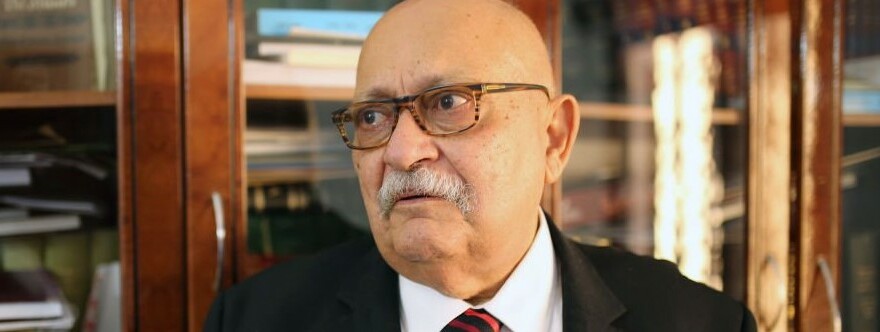Nabil Adib, the head of the committee investigating the mass killing during the violent break-up of the sit-in in front of the army command in Khartoum on June 3, 2019, has revealed that its work had stalled due to the ongoing war in the country.
The Sudanese transitional government appointed the lawyer to head the committee in 2020, to investigate the dispersal of the sit-in in front of the General Army Command, which resulted in the deaths of hundreds of protesters.
In an interview with Radio Tamazuj on Monday, Adib explained that the committee currently lacks a headquarters as its members were scattered in different countries. “The war does not permit the committee to continue its work,” he said.
Adib noted that the committee had refused to operate from its headquarters in Khartoum in March 2022 due to an entity that had requested a floor in the building housing it. He indicated that the entity posed a threat to the committee’s work by potentially exposing the investigations.
He explained that the group, which had requested an entire floor, had sought military assistance after the committee objected to their presence. As a result, he went on, the committee proceeded to an undisclosed location.
Regarding allegations of bias and lack of professionalism directed at him, Adib vehemently denied, stating: “Everyone knows my political activities in resisting the Bashir regime.”
He highlighted that he was the head of the legal committee for the Forces of Freedom and Change (FFC) and had defended many who opposed the Bashir regime.
Earlier this year, Adib appeared at a political event in Cairo organized by groups supporting the armed forces. He clarified that the Cairo event was not connected to the military council.
“The Cairo Charter may be said to support the Sudanese army. The army is the Sudanese army, one of the state’s institutions, not a political entity. Thus, supporting the army should not be seen as a political stance,” he said.
Adib emphasized that he supports the survival of the Sudanese state and denied that his position would affect the course of the investigation into the sit-in dispersal.
The dispersal of the General Command sit-in is an issue closely tied to the Sudanese December Revolution. Organized forces used firearms to disperse the protests, resulting in hundreds of deaths, according to human rights organizations.
Formed in 2020, the committee had heard testimonies from hundreds of eyewitnesses, but was yet to announce any results.
Adib is a well-known Sudanese lawyer and a human rights advocate, recognized for his Sudan’s leftist leanings.




